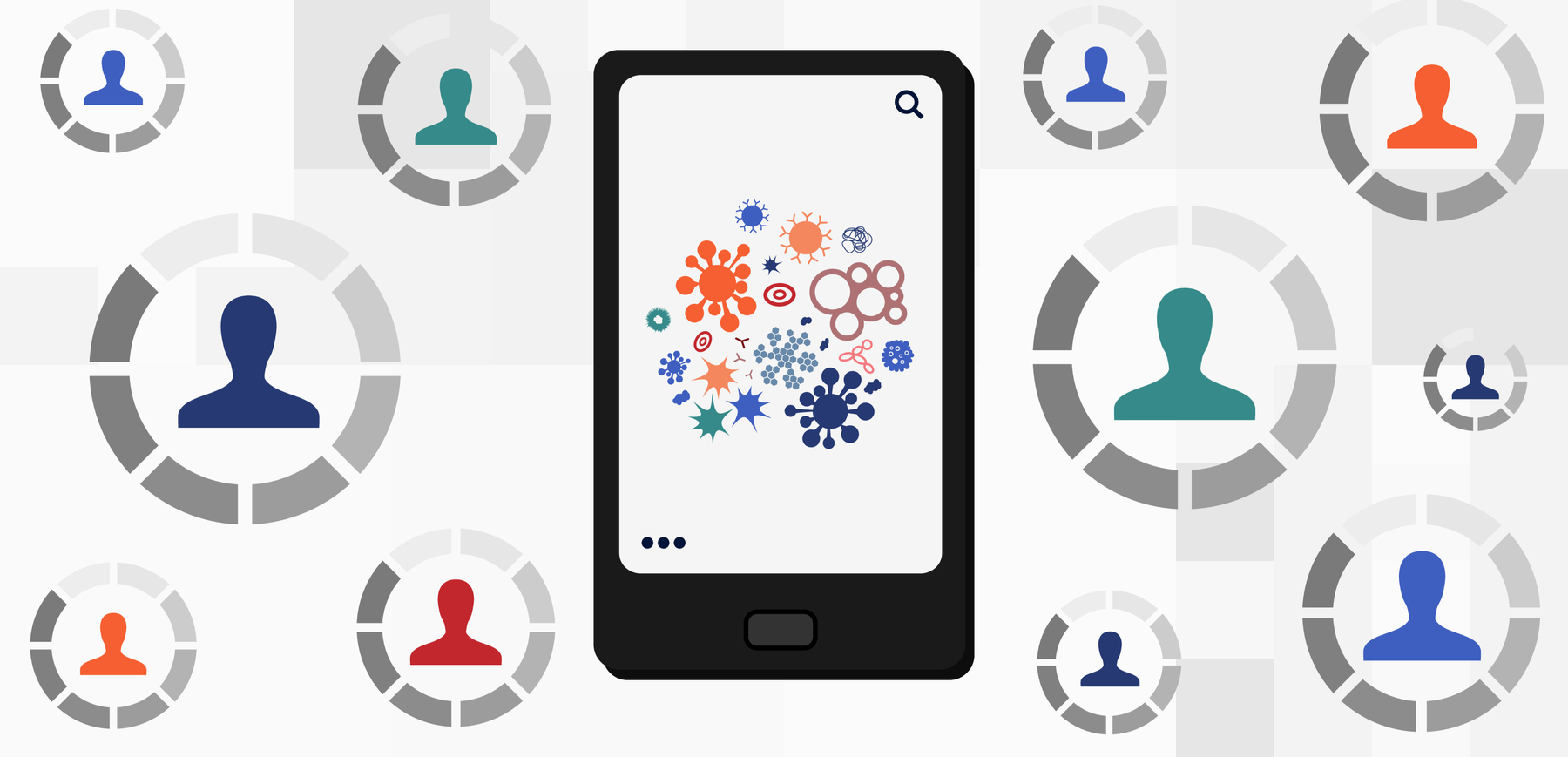The first pandemic of the modern era is bringing together the life sciences, healthcare, and tech industries to come up with novel responses. Digital health innovators have come into the spotlight, with solutions such as portable diagnostics, AI-based outbreak surveillance, telehealth, and mobile health apps. We examine some of the solutions that are on the leading edge of the fight, based on insights derived from Cortellis Digital Health Intelligence, a Clarivate solution.
Healthcare Systems and Patients Pushed to Their Limits
A major roadblock to slowing the spread of coronavirus was lack of early testing. In the U.S., commercial firms were not authorized to perform diagnostic testing and labs experienced verification issues leading to restricted scale-up. Further, several countries remain below the required scale, and most diagnostic tests require in-person interaction with healthcare staff, which heightens risk of exposure.
COVID-19 has contributed to growing stress on the current healthcare system. The reduction of outpatient services to mitigate transmission threatens continuity of care for acute and chronic patients, calling for rapid adoption of virtual care models. As the world looks to progressively ease restrictive measures, real-time public health data are needed to avoid the re-occurrence of pandemic peaks and support healthcare capacity planning.
Finally, social distancing and the closure of schools, workplaces, and outdoor spaces has inevitably taken its toll—both physically and mentally—on the global population. New consumer-focused digital therapeutics are helping to combat anxiety and physical deterioration.
Digital Health Innovations: Responding to COVID-19
As of June 8, 2020, Cortellis Digital Health Intelligence reports 467 companies and 114 partnerships active in fighting COVID-19, both with new solutions and pivoting on existing capabilities.1 Below is a partial selection of digital health innovators seeking to support the global response:
Accelerating COVID-19 diagnoses: Early-on, several companies raced to manufacture substantial numbers of rapid mail-order COVID-19 viral tests with at-home specimen collection, but not without challenges. Following the FDA’s clarification in late March, which stated that an Emergency Use Authorization (EUA) was required specifically for home test kit methods prior to launch, several companies halted their services.2 In mid-April, Vault Health was the first to obtain FDA’s EUA clearance for an at-home saliva-based viral test, followed by nasal-swab kits by LabCorp and Everlywell. At the same time, rapid antibody finger-prick tests to help determine prior infections are in development or under regulatory review. In parallel, advanced diagnostics are helping fast-track COVID-19 diagnosis at the point of care—e.g., through AI-based analysis of chest X-rays by developers such as Qure.ai and behold.ai, and portable auscultation methods like Bat-Call’s AI-powered stethoscope.
Digital contact tracing and surveillance: According to a recent Oxford University modelling, real-time digital contact tracing of the wider population, coupled with targeted quarantine mandates, can help avoid the re-occurrence of pandemic peaks.3 Asia Pacific countries have been leading the way, initially tracking mobile phones’ GPS signals in China and South Korea, then with apps that use Bluetooth signals and anonymous IDs to preserve data privacy, such as Singapore’s TraceTogether. This was followed by Australia’s COVIDSafe app, downloaded by six million citizens as of early June. The U.S., U.K., Israel, Italy, and Austria all have, or are working on, similar apps.4
International initiatives are setting cross-border data privacy standards, and a “first” collaboration between tech giants Apple and Google, has led to the late May launch of an API to enable interoperability between iOS and Android contact tracing apps. Symptoms self-tracking tools, such as Babylon’s app as well as AI-based surveillance platforms like Canadian’s BlueDot, can also play a role in anticipating and shaping the evolution of the pandemic.
Telehealth and remote monitoring on the rise: In early March, Medicare extended reimbursement of telemedicine services beyond routine visits and outside of rural areas for the duration of the current public health emergency.5 This, coupled with discounted commercial plans across countries, is driving adoption of virtual solutions to streamline the flow of COVID-19 cases, and guarantee continued care to chronic patients. The most effective ones support the entire care journey, from prevention resources, to chatbots for risk self-assessment, to telemedicine visits and triaging tools. For example, Biofourmis and Masimo Safety Net adapted their AI-powered platforms to monitor biomarkers such as oxygen saturation, respiration rate, and temperature of COVID-19 patients. While China’s publicly listed Ping An Good Doctor has opened its 24/7 COVID-19 Global Medical Consultation Platform to overseas users.
Preserving mental health and well-being through apps: Between January and March, the number of hours spent on mental health and fitness apps spiked in the U.S. by ~30%, and in China and Japan by ~20%, as consumers in isolation sought emotional and social support.6 More mental health digital therapeutics are expected to come to market as approval requirements are eased. This was evidenced by the limited distribution program recently announced by Pear Therapeutics for its schizophrenia product candidate, Pear-004. The FDA has recently decided to waive the need to submit a 510(k) premarket notification for select Software as a Medical Device categories, where these do not create an undue risk, in conditions such as anxiety, major depression, obsessive compulsive disorder, and post-traumatic stress disorder.7
Consumers and prescribers can find it difficult to choose from the hundreds of mental health apps available, with limited access to reliable clinical evidence. A recent Nature study found that a small minority of the most popular, consumer-focused mental health apps provided substantial scientific evidence or referenced certification processes.8 Apps such as Wysa, Headspace, and MyCognition HOME, with high clinical and data safety quality scores from the Cortellis Digital Health Intelligence app library, are among the ones that launched tailored packages for the COVID-19 pandemic.
Looking Ahead
Each day, we see a new cohort of digital health companies enter the COVID-19 space, often through collaborations, and encouraged by more generous regulatory frameworks and government funding. The industry is learning to strike a balance between rolling out innovative solutions at speed before it’s too late, and ensuring reliability, data security, and ease-of-use to drive critical mass adoption. Coordination across initiatives and the ability to integrate with healthcare workflows and other technology platforms remains key to creating a stronger, united front.
References:
1. Cortellis Digital Health Intelligence. Accessed 8 June, 2020.
2. Cortellis Regulatory Intelligence. “FDA Guidance: Policy for Coronavirus Disease-2019 Tests During the Public Health Emergency (Revised), 11 May 2020.” Note: supersedes prior guidance documents.
3. Science. Luca Ferretti et al. “Quantifying SARS-CoV-2 Transmission Suggests Epidemic Control with Digital Contact Tracing.” Mar 31, 2020.
4. BioWorld. Lawrence, Stacey. “Researchers Explore Ways AI Can Help in Fight Against COVID-19.” 2 April, 2020.
5. Medicare Learning Network. Telehealth Services. March 2020.
6. App Annie’s website. The Impact of Coronavirus on the Mobile Economy. Accessed 8 June, 2020.
7. Cortellis Regulatory Intelligence. “FDA Guidance: Enforcement Policy for Digital Health Devices For Treating Psychiatric Disorders During the Coronavirus Disease 2019 (COVID-19) Public Health Emergency, 15 April 2020.”
8. Nature Partner Journals, Digital Medicine. “Using Science to Sell Apps: Evaluation of Mental Health App Store Quality Claims.” 2, Article number: 18. March, 2019.









